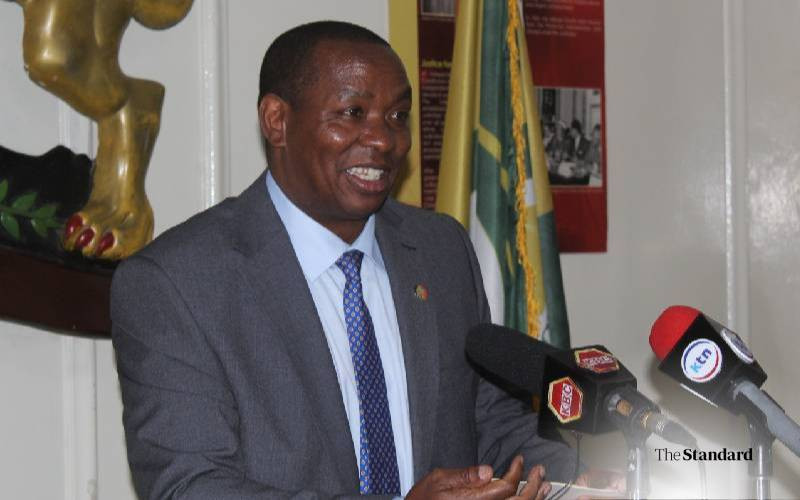The Executive has six months to transition all tribunals to the Judiciary.
This is after the Court of Appeal affirmed the High Court’s orders that tribunals under ministries should be placed under the Judiciary, and the Judicial Service Commission (JSC) appointments should be made.
Justices Francis Tuiyott, Agrrey Muchelule, and George Odunga unanimously agreed that High Court Judge Charo Mrima was right to find that it is illegal for the Executive to usurp the Judiciary’s powers of dispute resolution.
“We have on our own re-evaluated the evidence placed before the trial court and the submissions made, and we find no reason to fault the learned Judge’s decision, which was sound, both in law and in fact. Consequently, we find no merit in this appeal which we dismiss but with no order as to costs,” the bench headed by Justice Tuiyott ruled.
The three-judge-bench were determining an appeal filed by the Attorney General against Busia Senator Okiya Omtatah.
The AG, in the appeal, claimed that the six-month grace period was too short as the transition required money to implement. According to the AG, the process required at least two years for the passage of a law to fully shift the tribunals to the third arm of government.
At the same time, the government’s legal advisor urged the court to find that some of the tribunals were set to resolve issues in the ministries.
Parliament, on the other hand, said that enacting law to govern tribunals is not mandatory.
In the case, Justice Mrima said members of the tribunals are judicial officers and therefore should be appointed by the commission.
Some of the tribunals include Sports Tribunal, which deals with sports disputes, Political Parties Disputes Resolution Tribunal which deals with cases emanating from political parties, Rent Tribunal, HIV and AIDS Tribunal which hears cases relating to discrimination and rights surrounding HIV.
“The Constitution has by now been in place for the last 11 years. During that period, the progress has been very minimal. It is not clear from the approach by the third respondent how long it will take for a legislation to be put in place. This is, therefore, a case which, in my view, calls for the Court’s supervision in the nature of structural interdicts,” the judge observed.
Mr Omtatah argued that tribunals run differently and their members are executive appointees. He said that some run as part of government departments while others conduct their businesses as independent judiciary bodies.
According to him, having the tribunals under the executive was eroding the independence of the Constitution.
In the case, he sued the AG and Judicial Service Commission (JSC) and listed Katiba Institute as an interested party.
Stay informed. Subscribe to our newsletter
“The executive has been erroneously being treating the tribunals as their own. They lack unanimity in many aspects, infringing on the separation of power in many ways,” he argued.
According to him, it is impossible to litigate with the government cases before the tribunals as the members owe their loyalty to the appointing authority.
In its reply, JSC argued that it had no role in the appointment of tribunal members. It, however, pointed out that it had gone ahead to ensure that the tribunals that had already moved to the judiciary were run according to the law.
JSC argued that Parliament should enact the law to ensure that the remaining tribunals are also transferred to the judiciary.
The AG also urged the court to dismiss the case, arguing that Omtatah had not indicated what law the State had violated. He asserted that the right avenue for the senator was Parliament and not courts, as the latter had no mandate in the law-making process.
He, however, pointed out that if the court agreed with the lawmaker, then it should give a structure through which Parliament ought to rectify the issues raised in the case.

























